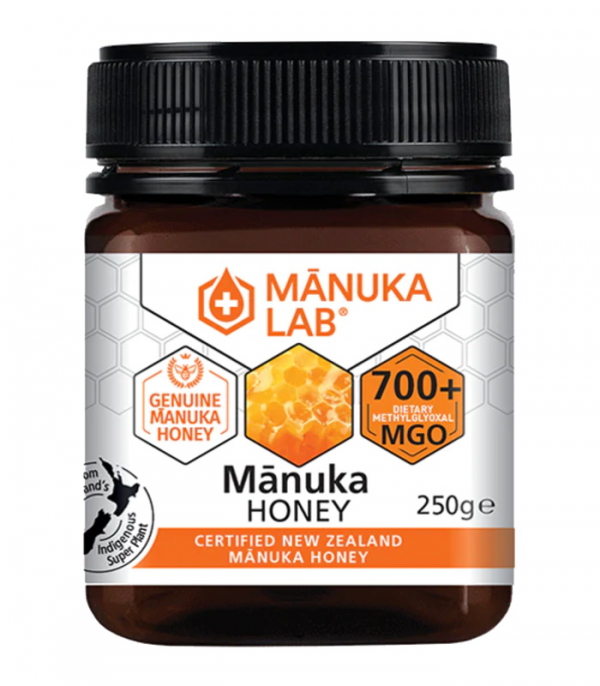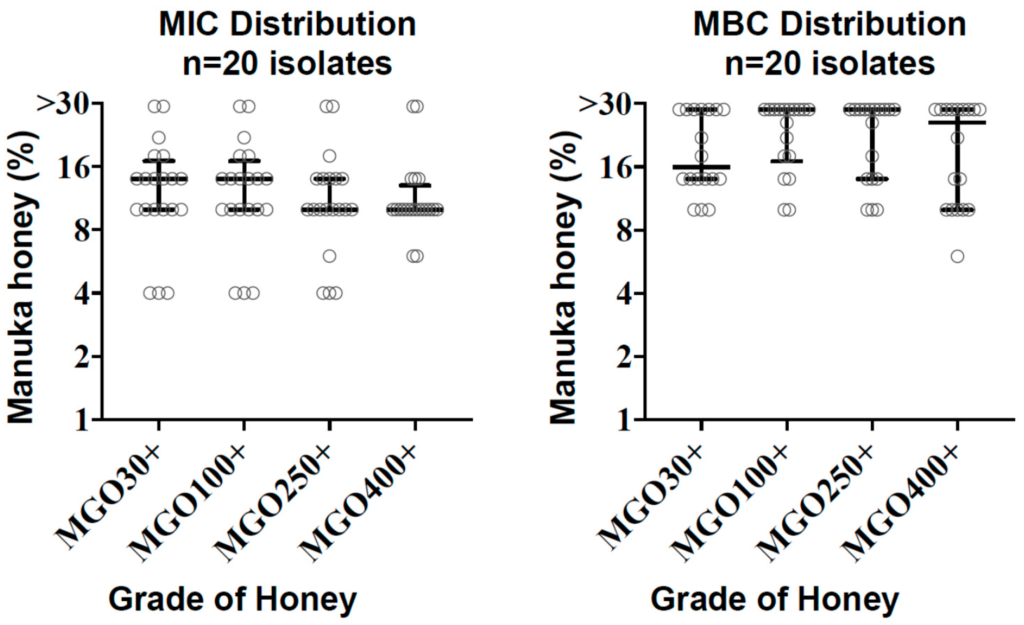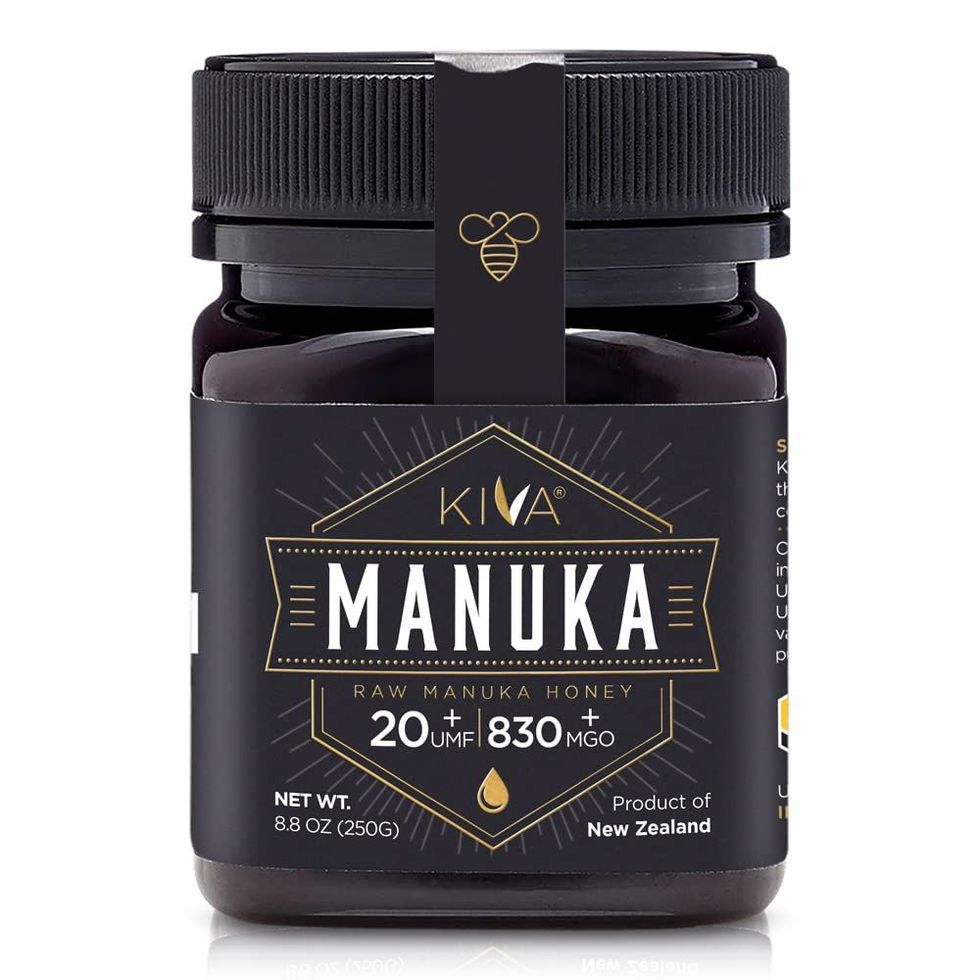
Are you curious about the recommended dosage of manuka honey for treating C Diff? If so, look no further! In this article, we will explore the topic of how much manuka honey you should take when dealing with C Diff. Whether you’re already familiar with the benefits of manuka honey or just starting to discover its healing properties, we’ve got you covered. So grab a cup of tea, sit back, and let’s delve into the world of manuka honey and C Diff.

What is C Diff
Overview of C Diff
C Diff, short for Clostridium difficile, is a type of bacteria that can cause infection in the colon, leading to a condition known as Clostridium difficile infection (CDI). This infection is often found in healthcare settings, such as hospitals or long-term care facilities, but it can also occur outside of these environments. C Diff infection can cause a range of symptoms, from mild diarrhea to life-threatening complications.
Causes of C Diff
C Diff is primarily transmitted through the ingestion of spores that are found in feces. These spores can be transferred to surfaces or objects and then carried to the mouth. Healthcare settings are particularly prone to C Diff outbreaks due to the close proximity of infected individuals and the potential for contaminated surfaces. Additionally, certain factors can increase the risk of developing a C Diff infection, such as recent use of antibiotics, older age, and certain medical conditions.
Symptoms of C Diff
The symptoms of C Diff can vary from person to person, but the most common symptom is diarrhea. This diarrhea may be accompanied by abdominal pain, cramping, and fever. In severe cases, C Diff infection can lead to dehydration, weight loss, and even toxic megacolon, which is a life-threatening condition characterized by severe inflammation of the colon. It is important to recognize the symptoms of C Diff and seek medical attention if you suspect an infection.
Understanding Manuka Honey
What is Manuka Honey
Manuka honey is a unique type of honey that comes from the nectar of the Manuka tree, which is native to New Zealand. What sets Manuka honey apart from other types of honey is its high concentration of a compound called methylglyoxal (MGO). MGO is believed to be responsible for many of the health benefits associated with Manuka honey. The honey also contains other bioactive compounds, such as hydrogen peroxide and phenolic compounds, which contribute to its medicinal properties.
Health Benefits of Manuka Honey
Manuka honey has been used for centuries for its numerous health benefits. It has antimicrobial properties, meaning it can help fight against bacteria, viruses, and fungi. This makes Manuka honey a natural alternative to antibiotics in some cases. Additionally, Manuka honey has anti-inflammatory properties, which can help reduce inflammation in the body. It is also known to promote wound healing and support digestive health. Manuka honey has even been studied for its potential anticancer effects.
Properties of Manuka Honey
The properties of Manuka honey that make it stand out include its high levels of MGO, which give it its unique antibacterial activity. The MGO in Manuka honey is measured using a rating system called the Unique Manuka Factor (UMF). The higher the UMF rating, the higher the concentration of MGO in the honey. Manuka honey with a UMF rating of 10+ is considered to have therapeutic properties, while a rating of 16+ is considered superior-grade and ideal for medicinal use. The consistency and thickness of Manuka honey are also different from regular honey, making it easier to apply topically or dissolve in liquids.
Manuka Honey as a Treatment for C Diff
Evidence and Studies
There is growing evidence to suggest that Manuka honey may have a role in the treatment of C Diff infection. Several studies have shown that Manuka honey has potent antimicrobial activity against C Diff and can inhibit its growth. For example, a study published in the Journal of Antimicrobial Chemotherapy found that Manuka honey was effective against both the spores and vegetative forms of C Diff. These findings provide support for the use of Manuka honey as a natural treatment option for C Diff infection.
How Manuka Honey Works for C Diff
The mechanisms behind Manuka honey’s effectiveness against C Diff are still being explored, but researchers believe that its high concentration of MGO plays a significant role. MGO has been shown to disrupt the cell membranes of bacteria, leading to their destruction. It is also thought that Manuka honey’s low pH and high sugar content create an unfavorable environment for the growth of C Diff. Additionally, Manuka honey has been found to have immunomodulatory effects, meaning it can help regulate the immune system’s response to infection.
Recommended Dosage of Manuka Honey
The appropriate dosage of Manuka honey for the treatment of C Diff infection can vary depending on the severity of the infection and individual factors. It is recommended to start with a small amount, such as a teaspoon, and gradually increase the dosage if tolerated well. Some healthcare professionals may recommend taking Manuka honey multiple times a day, while others may suggest a less frequent dosing schedule. It is important to follow the guidance of a healthcare professional and monitor your symptoms closely when using Manuka honey for C Diff.
Factors to Consider When Using Manuka Honey for C Diff
Severity of C Diff Infection
The severity of the C Diff infection should be taken into account when considering the use of Manuka honey. Mild cases of C Diff may respond well to Manuka honey alone, while more severe cases may require additional medical interventions. It is important to consult with a healthcare professional to assess the severity of your infection and determine the appropriate approach to treatment.
Individual Tolerance and Sensitivity
Individuals may vary in their tolerance and sensitivity to Manuka honey. While it is generally considered safe for most people, some individuals may experience allergic reactions or digestive discomfort when consuming honey. It is recommended to start with a small amount of Manuka honey and monitor your body’s response. If any adverse reactions occur, discontinue use and consult with a healthcare professional.
Other Health Conditions
Individuals with certain health conditions, such as diabetes or compromised immune systems, should exercise caution when using Manuka honey for C Diff. Manuka honey is a source of carbohydrates and can affect blood sugar levels. It is important to work with a healthcare professional to ensure that the use of Manuka honey is safe and appropriate for your specific health condition.
Consulting with a Healthcare Professional
Seeking Medical Advice
Before starting any treatment, including the use of Manuka honey for C Diff, it is recommended to seek medical advice. A healthcare professional can assess your symptoms, perform necessary tests, and provide guidance on the most appropriate treatment options for your specific situation. They can also help evaluate the potential benefits and risks of using Manuka honey as part of your treatment plan.
Discussing Treatment Plan
A healthcare professional can help develop a comprehensive treatment plan for C Diff infection, which may include the use of Manuka honey. They will consider various factors, such as the severity of the infection, your overall health, and any medications you may be taking. It is important to have open and honest discussions with your healthcare professional to ensure that your treatment plan aligns with your goals and needs.
Follow-up Appointments
Regular follow-up appointments with your healthcare professional are essential when using Manuka honey as a treatment for C Diff. These appointments allow for close monitoring of your symptoms, progress, and any potential side effects. It also provides an opportunity to make any necessary adjustments to your treatment plan based on your response to the Manuka honey. Do not hesitate to schedule follow-up appointments or reach out to your healthcare professional if you have any concerns or questions.
Possible Side Effects and Precautions
Potential Side Effects of Manuka Honey
While Manuka honey is generally considered safe for consumption, some individuals may experience side effects. These can include allergic reactions, digestive issues such as stomach pain or diarrhea, and changes in blood sugar levels for individuals with diabetes. If you experience any adverse effects after consuming Manuka honey, discontinue use and consult with a healthcare professional.
Allergies and Sensitivities
individuals with allergies to honey, bee stings, or other bee products should exercise caution when using Manuka honey. Although rare, allergic reactions to Manuka honey can occur. It is recommended to perform a patch test before consuming Manuka honey or to consult with an allergist or healthcare professional if you have concerns about potential allergies or sensitivities.
Interactions with Medications
Manuka honey may interact with certain medications, particularly those that are metabolized by the liver. It is recommended to consult with a healthcare professional if you are taking any medications, including prescription, over-the-counter, or herbal supplements, to ensure there are no potential interactions. Your healthcare professional can provide guidance on the safe and appropriate use of Manuka honey alongside your current medications.

Tips for Choosing and Using Manuka Honey
Quality and Grading
When selecting Manuka honey for the treatment of C Diff, it is important to look for reputable brands that adhere to strict quality standards. Manuka honey can be graded based on its UMF rating, which reflects the concentration of MGO. Higher UMF ratings indicate higher levels of MGO and are generally considered more potent. Look for Manuka honey with a UMF rating that aligns with your desired therapeutic effect.
Storage and Shelf Life
Proper storage of Manuka honey is crucial to maintain its quality and effectiveness. It should be stored in a cool, dry place away from direct sunlight. Avoid exposing Manuka honey to excessive heat, which can degrade its beneficial compounds. It is also important to check the expiration date and use the honey before it expires to ensure maximum potency.
Administration Methods
Manuka honey can be consumed orally or used topically, depending on the intended purpose. As a treatment for C Diff, oral consumption is typically recommended. You can consume Manuka honey directly, add it to warm water or herbal tea, or use it as a natural sweetener in recipes. It is important to follow the recommended dosage and administration instructions provided by a healthcare professional.
Alternative Treatment Options for C Diff
Traditional Antibiotics
In more severe cases of C Diff infection, traditional antibiotics may be prescribed to target the specific strain of C Diff causing the infection. Antibiotics such as metronidazole, vancomycin, and fidaxomicin are commonly used. However, it is important to note that excessive or inappropriate use of antibiotics can contribute to antibiotic resistance and may disrupt the natural balance of bacteria in the gut.
Probiotics
Probiotics, which are beneficial bacteria, may be recommended alongside or after antibiotic treatment to help restore the balance of gut bacteria. Probiotics can help promote the growth of healthy bacteria in the gut, which may help prevent the recurrence of C Diff infection. They are available in various forms, such as capsules, powders, and fermented foods.
Surgical Intervention
In rare cases of severe C Diff infection that do not respond to other treatments, surgical intervention may be necessary. This can involve removing a portion of the colon affected by the infection or creating a temporary or permanent colostomy. Surgery is typically considered a last resort option and is only performed when other treatment options have been exhausted.

Additional Dietary and Lifestyle Factors
Dietary Modifications
In addition to any specific treatment, making certain dietary modifications can help support the management of C Diff infection. It is important to focus on a diet that is rich in fiber to help promote healthy digestion and encourage the growth of beneficial bacteria in the gut. Probiotic-rich foods, such as yogurt and fermented vegetables, can also be incorporated into the diet to support gut health.
Hydration and Rest
Proper hydration is essential when dealing with any infection, including C Diff. Drinking an adequate amount of water can help prevent dehydration, which is a common complication of diarrhea caused by C Diff. Additionally, getting enough rest is important to allow your body to recover and heal from the infection.
Stress Management
Stress can impact the immune system and make it more difficult for your body to fight off infections. Therefore, managing stress levels is crucial in supporting your overall health and well-being during and after a C Diff infection. Engaging in activities that promote relaxation, such as yoga, meditation, or spending time in nature, can be beneficial.
Conclusion
Individualized Approach
The treatment of C Diff infection, including the use of Manuka honey, should be approached on an individualized basis. The severity of the infection, individual tolerance, and other health conditions should be taken into consideration when developing a treatment plan. It is important to work closely with a healthcare professional to determine the most appropriate course of action for your specific situation.
Monitoring C Diff Symptoms
Regular monitoring of C Diff symptoms is crucial during treatment and recovery. Pay close attention to the frequency and consistency of bowel movements, the presence of abdominal pain or cramping, and any other changes in symptoms. This will help guide the effectiveness of the treatment and indicate if any adjustments are necessary.
Long-term Management
Successfully managing C Diff infection involves not only effectively treating the initial infection but also implementing measures to prevent recurrence. This may include continuing with a maintenance dose of Manuka honey, incorporating probiotics into the diet, and practicing good hand hygiene. Long-term management should be discussed with a healthcare professional to ensure the best outcomes and minimize the risk of future infections.

